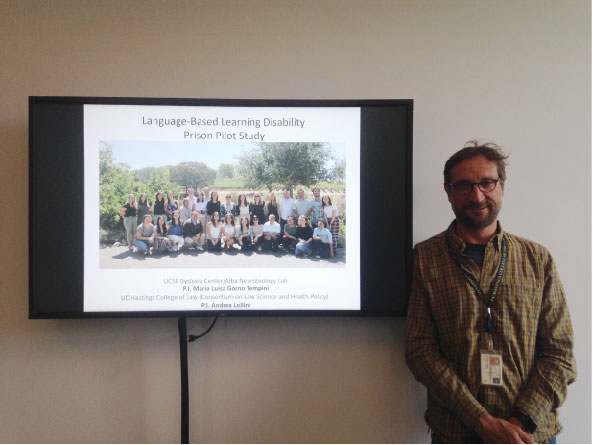Language-based learning disabilities in a prison population

Adjunct UC Hasting Professor of Law, Andrea Lollini, presented preliminary findings from an ongoing pilot study on language-based learning disabilities (LLDs) within an all-female prison population. An interdisciplinary collaboration between the UCSF Dyslexia Center, Marilu Gorno Tempini of the UCSF Memory and Aging Center, and the UCSF/ UC Hastings Consortium on Law, Science and Health Policy, this project aims to determine the prevalence of LLDs among incarcerated persons, use a data-driven approach to inform best practices for LLD identification and remediation within prisons, and develop standardized LLD screening tools and teaching methodologies for future use in prisons.
To date, the study team has recruited over 260 inmates, who are undergoing dyslexia screening through a series of exams including a medical intake, a social history interview, a neurodevelopmental history questionnaire, and a cognitive battery. We discussed the ethical challenges of administering these assessments within a correctional environment. Regarding consent, we discussed Andrea’s use of the teach-to-goal model as a solution to concerns regarding enrollment of participants deemed vulnerable due to their incarcerated status and potential reading and writing disabilities. Andrea also described the challenge of his role as a research interviewer seeking to understand participant narratives and build rapport. He acknowledged the emotional toll endured by participants who share their traumatic experiences, as well as researchers who must exercise empathy while remaining within the bounds of the prison’s strict conduct policy. In considering the broader legal and social implications of this project, we reviewed the increasing rate of diagnosis for LLDs in the general US population; the relationship between LLDs, low educational attainment, and reduced employment access; and the present gap in knowledge regarding how LLDs specifically affect prison populations.
 Decision Lab
Decision Lab